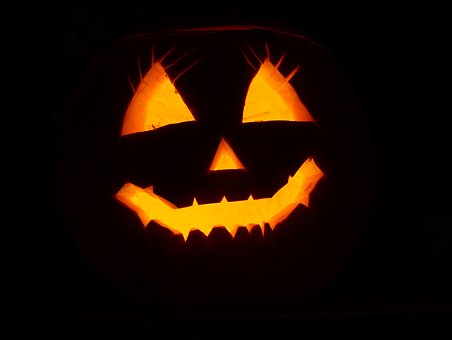A fancy for fear? There’s science behind why we like to be scared

Fear, despite being defined as an unpleasant emotion, has always been a major stimulus for some people. Whether it be through horror films, haunted houses, or simply dressing up for Halloween, some people can use fear to stimulate excitement. Despite some people feeling the exact opposite, there is psychology that shows why it is sometimes fun to be scared.
The sensation of being scared begins with a reaction in our brains. “When your brain perceives a threatening or scary situation, [it] triggers a biochemical reaction in the body known as the ‘fight or flight’ response,” said Emily Sportsman, the Pioneer psychologist. “When we are scared, our body releases adrenaline… our breathing and heart rate increases to prepare the body to defend itself against a threat or to escape it.”
The “fight or flight” response dates back to our ancestors, who needed survival skills on a day to day basis. Being calm doesn’t help someone fight for their life against hungry animals. Ancestors who had the best instincts- the strongest, the fastest- were the ones to survive and they passed their genes along for generations. These instincts would develop into the survival response that we have today. The relief someone feels after being scared is an evolutionary adaptation as well. After making it through a scare, no matter how brief, the satisfaction of surviving boosts one’s sense of accomplishment.
A study was done by David Zald from Vanderbilt University also revealed that the chemical dopamine, usually associated with addiction, was involved in the reaction of fear. Zald and his researchers found that people with fewer autoreceptors (molecules that regulate the body’s production of chemicals) are more likely to enjoy scary situations because their body allows them to produce more dopamine during distress.
Although we all have survival skills to some degree, this rush of adrenaline affects individuals differently- if someone is more easily scared or prefers calmer situations, they will feel uncomfortable with the high levels of stimulation. If someone is seeking out high-risk situations, such as bungee jumping or skydiving, they need that excitement in order to feel a sense of thrill. Additionally, things like genetic differences or personal experiences and preferences come into play as well. “Personally, I have an overactive imagination so if I hear about one scary thing I’ll think about it for weeks,” said Abby Lyons, a Pioneer freshman.
In contrast, those who enjoy the horror genre often cite these levels of excitement in being scared as something they enjoy. “It gives me thrill, like I’m riding a rollercoaster but instead I’m just watching,” said Junior Daeun Nam.
Watching horror movies also provides a different experience than entering a haunted house. “You can explore that genre without having to participate in anything unpleasant,” Jodi Bullinger, the Pioneer psychology teacher, said. Similar to playing a violent video game, the audience is removed from any danger in the situation and can enjoy the natural high of being scared without the life-threatening aspect.
Additionally, many people would only go to a scary film or a haunted house with others, rather than by themselves. “The excitement of being scared with another person can lead to bonding, such as snuggling to another person during a scary movie or even feelings of sexual attention,” said Sportsman. Experiencing these emotions with friends develops closeness that can make the memory of something frightening a positive one, instead of a scary one.
The usage of emotions within the horror industry makes sense for some. “I would assume people like scary movies for the same reason people like sad movies or uplifting ones,” said Lyons. “Emotional stimulation, be it positive or negative, is what the entertainment industry is, so it just makes sense.”
The horror industry also utilizes creativity in many ways to develop ways to triggers these strong emotions. Bullinger, who once got sent to the counseling office by a teacher in 8th grade for her assigned English horror story, highlights how imagination is at the head of these industries. “My teacher thought something was profoundly wrong with me, but I had fun seeing… ‘how far can I take this?’” she said. “There wasn’t anything inherently wrong with me. There’s just a certain voyeurism with seeing how far it can go without things going really macabre… it’s not real so it’s a safe space.”

